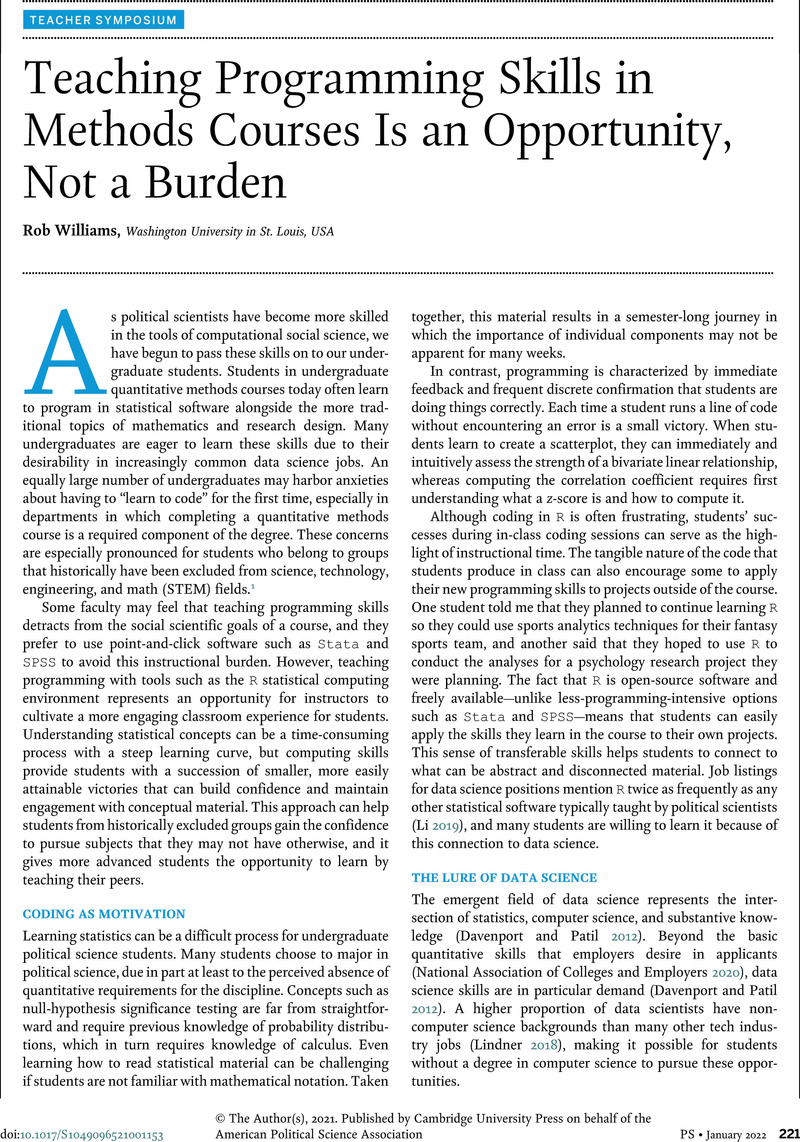Crossref Citations
This article has been cited by the following publications. This list is generated based on data provided by Crossref.
Marleku, Alfred
Peshkopia, Ridvan
and
Voss, D. Stephen
2024.
Let's get numerical: explaining Political Science student preferences for quantitative studies.
International Journal of Mathematical Education in Science and Technology,
p.
1.
Best, Eric
and
Mallinson, Daniel J.
2024.
Quantitative Political Science Education in the Past and Future.
Journal of Political Science Education,
Vol. 20,
Issue. 4,
p.
637.
Ampofo, Isaac Atta Senior
Ampofo, Isaac Atta Junior
Ampofo, Beatrice
Badzongoly, Eugene Louis Batie
Boateng, Francis Ohene
and
Asiedu, William
2024.
Intelligent Computing.
Vol. 1018,
Issue. ,
p.
602.



